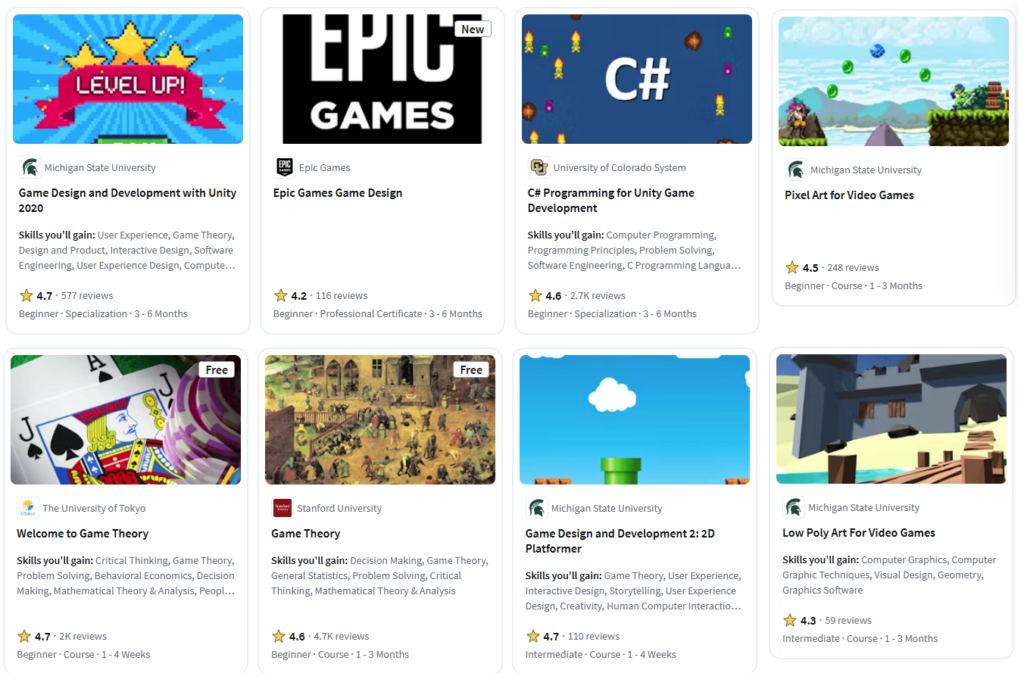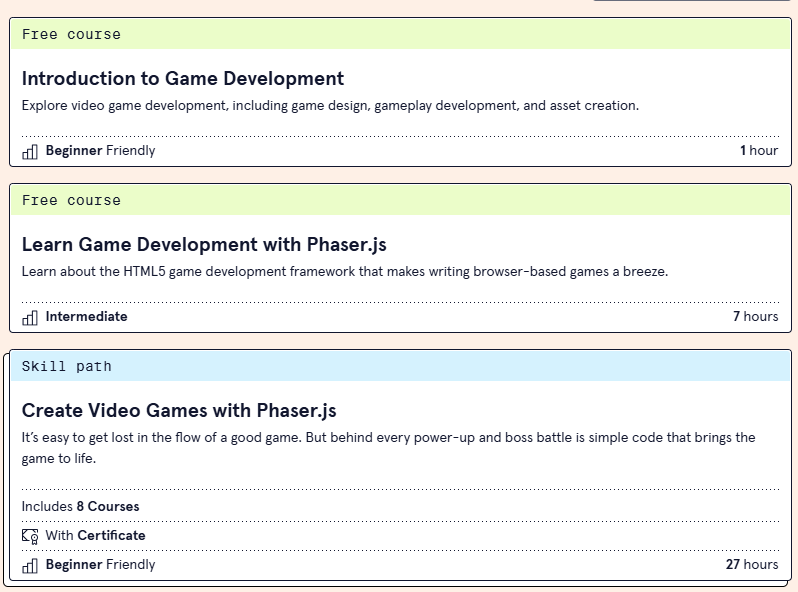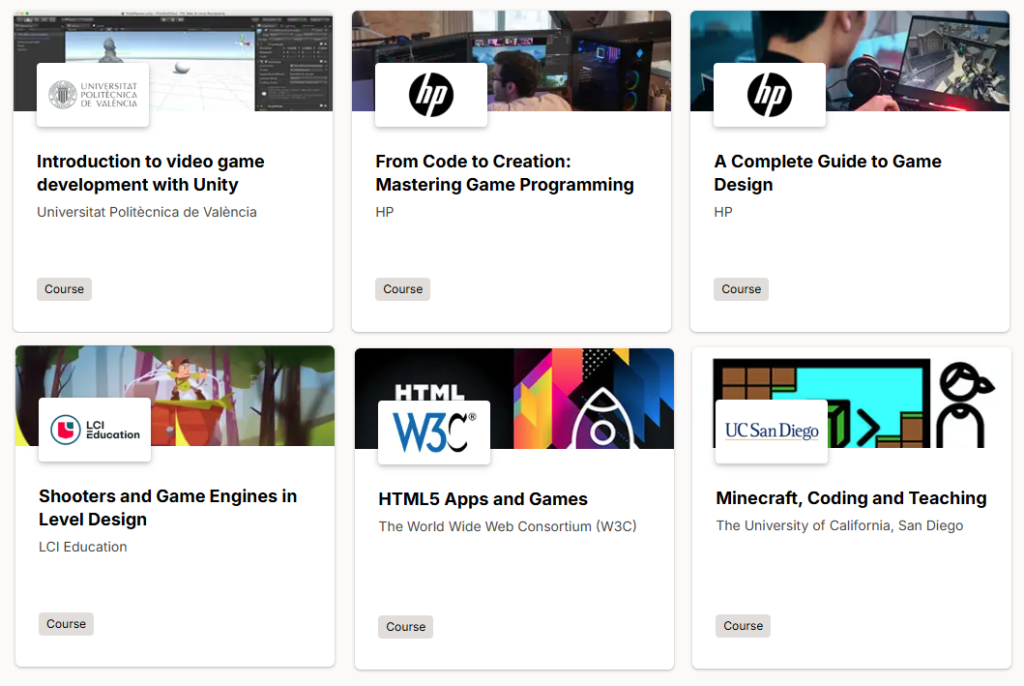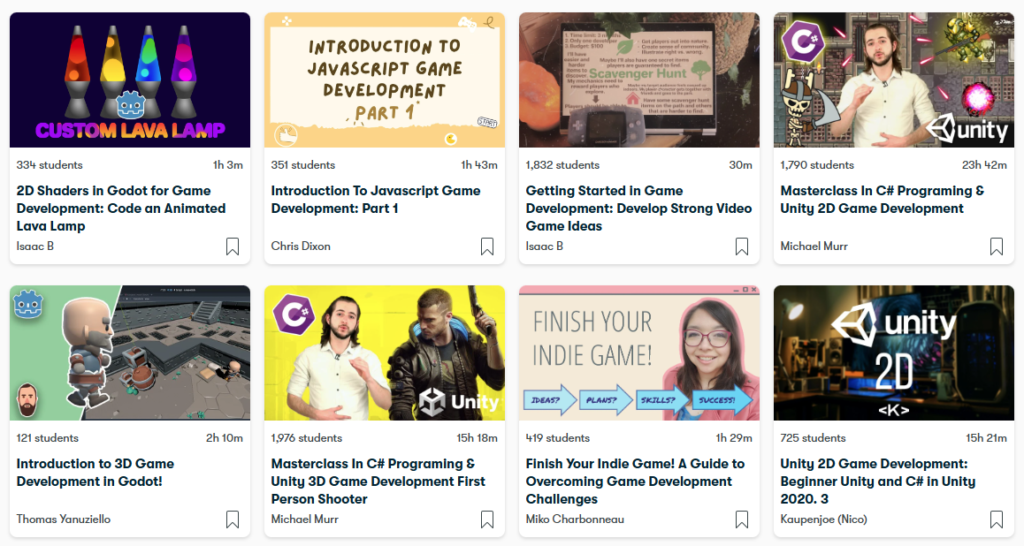Learning is a lifelong process that enriches both personal and professional growth. Not sure how to develop your first game? Fret not. In today’s fast-paced, digital-driven world, continual learning is more accessible and essential than ever. Online platforms such as Coursera, Udemy, Codecademy, edX, and Skillshare provide learners with the flexibility to expand their knowledge in a range of subjects, from technical skills to personal development, in a convenient and engaging way.
Here are some key reasons why online learning through these platforms is valuable:
Accessible Education: Online learning platforms break down barriers to education by allowing access to high-quality courses from anywhere in the world. Whether you’re a student, a working professional, or a retiree, these platforms offer diverse courses in virtually any subject, making it possible for learners to grow without geographical restrictions.
Affordable Learning Opportunities: Traditional education can be costly, but many online learning platforms offer courses at a fraction of the price or even for free. Websites like Coursera and edX, for instance, provide free courses from world-renowned universities like Harvard, Stanford, and MIT. Paid courses on platforms like Udemy and Skillshare are often highly affordable and frequently discounted, making high-quality education accessible for more people.
Self-Paced Learning: One of the biggest advantages of online learning platforms is the flexibility to learn at your own pace. This is particularly beneficial for those with full-time jobs, family responsibilities, or other commitments. Platforms like Codecademy and Udemy allow users to complete courses at their convenience, making it easier to balance learning with other aspects of life.
Diverse Learning Paths: Whether you’re interested in coding, graphic design, entrepreneurship, data science, or creative writing, there’s likely a course available online. Codecademy, for instance, focuses on coding skills, which are essential in today’s tech-driven world. Coursera and edX offer academic courses in fields like data science, psychology, and business from esteemed universities. Skillshare caters to creatives, providing tutorials on art, design, photography, and more.
Certification and Credibility: Online learning platforms often provide certificates upon course completion, which can boost resumes and portfolios. Courses on platforms like Coursera, which partners with universities, can be used as credible achievements that validate one’s skills in a particular field. This is especially helpful in career transitions or when upskilling for a current role.
Interactive Learning Experiences: Many platforms have innovated to make learning interactive, with tools like quizzes, peer review, projects, and discussion forums. Platforms like edX and Coursera offer collaborative learning opportunities, while Udemy and Skillshare provide project-based assignments. These interactions allow for real-world applications of learned skills, solidifying knowledge through practice.
Adaptability in a Changing Job Market: In a job market that constantly evolves with new technologies and skills, online platforms allow learners to stay current. Courses on emerging fields such as artificial intelligence, machine learning, digital marketing, and blockchain technology are available to anyone looking to remain competitive. This adaptability can significantly increase employability and career growth opportunities.
Developing a Growth Mindset: Continual learning encourages a growth mindset, which is essential for both personal fulfillment and professional success. Online courses are designed to meet students where they are, challenging them to expand their knowledge, adapt to new ideas, and push beyond their comfort zones.
If you are convinced that learning is growing, and not sure where best to start, do take a look at the various online educational platform below:
Coursera: Partners with top universities and institutions to offer academic courses and specializations, often at a high level of rigor. Their courses cover a broad range of fields, including computer science, game development, and business.
- Pros:
- Access to university-level courses.
- Certificate options that can add credibility to resumes.
- Offers both free and paid options, including financial aid.
- Structured, often self-paced.
- Cons:
- Some advanced courses are behind a paywall.
- Courses may be more theoretical than practical for some game development needs.
- Can be time-intensive due to academic rigor.

Udemy: Offers a wide variety of courses, often created by industry experts. It is popular for self-paced courses, and game development courses on topics like Unity, Unreal Engine, and C# are plentiful.
- Pros:
- Extensive library of game development topics.
- Regular discounts make courses very affordable.
- Self-paced, allowing you to fit learning around your schedule.
- Lifetime access to purchased courses.
- Cons:
- Quality can vary since courses are user-created.
- Limited interactivity; most courses are pre-recorded videos.
- Certificates may not carry the same weight as university-affiliated platforms.

Codecademy: Focuses on interactive coding courses in various programming languages, with a practical, hands-on approach. It’s ideal for beginners or intermediate learners looking to get comfortable with coding basics, which are essential for game development.
- Pros:
- Highly interactive learning experience, focusing on hands-on coding.
- Courses on JavaScript, Python, C++, etc., which are useful for game development.
- Free basic courses with a Pro subscription option for advanced content.
- Cons:
- Limited focus on advanced or niche topics like specific game engines.
- Fewer in-depth game development courses.
- Certificate of completion only available with a paid subscription.

edX: Offers rigorous, university-backed courses with options to audit for free or pay for a verified certificate. Its game development courses are often more theory-oriented, taught by university professors.
- Pros:
- High-quality courses from universities like Harvard, MIT, and Berkeley.
- Many courses are free to audit.
- Certificates carry weight due to university affiliations.
- Cons:
- Less flexibility due to scheduled course offerings.
- Practical, hands-on game development content may be limited.
- Advanced courses can be pricey if pursuing certificates or credits.

Skillshare: Subscription-based platform with a creative focus, ideal for visual skills like 2D art, character design, and animation, which are valuable in game development.
- Pros:
- Emphasis on creative skills—great for art, animation, and design.
- Subscription provides access to all courses.
- Project-based approach encourages creating portfolio pieces.
- Cons:
- Courses lack certificates.
- More suitable for artistic skills than technical coding.
- Subscription costs may be prohibitive if only a few courses are of interest.

Online learning platforms have transformed the educational landscape, making learning accessible, affordable, and flexible. Each platform has unique strengths, so the best choice depends on specific game development needs, whether you’re looking to learn coding basics, advanced techniques, design skills, upskilling for a career, exploring a new passion, or simply satisfying a curiosity, these platforms empower people worldwide to enrich their lives through education.




